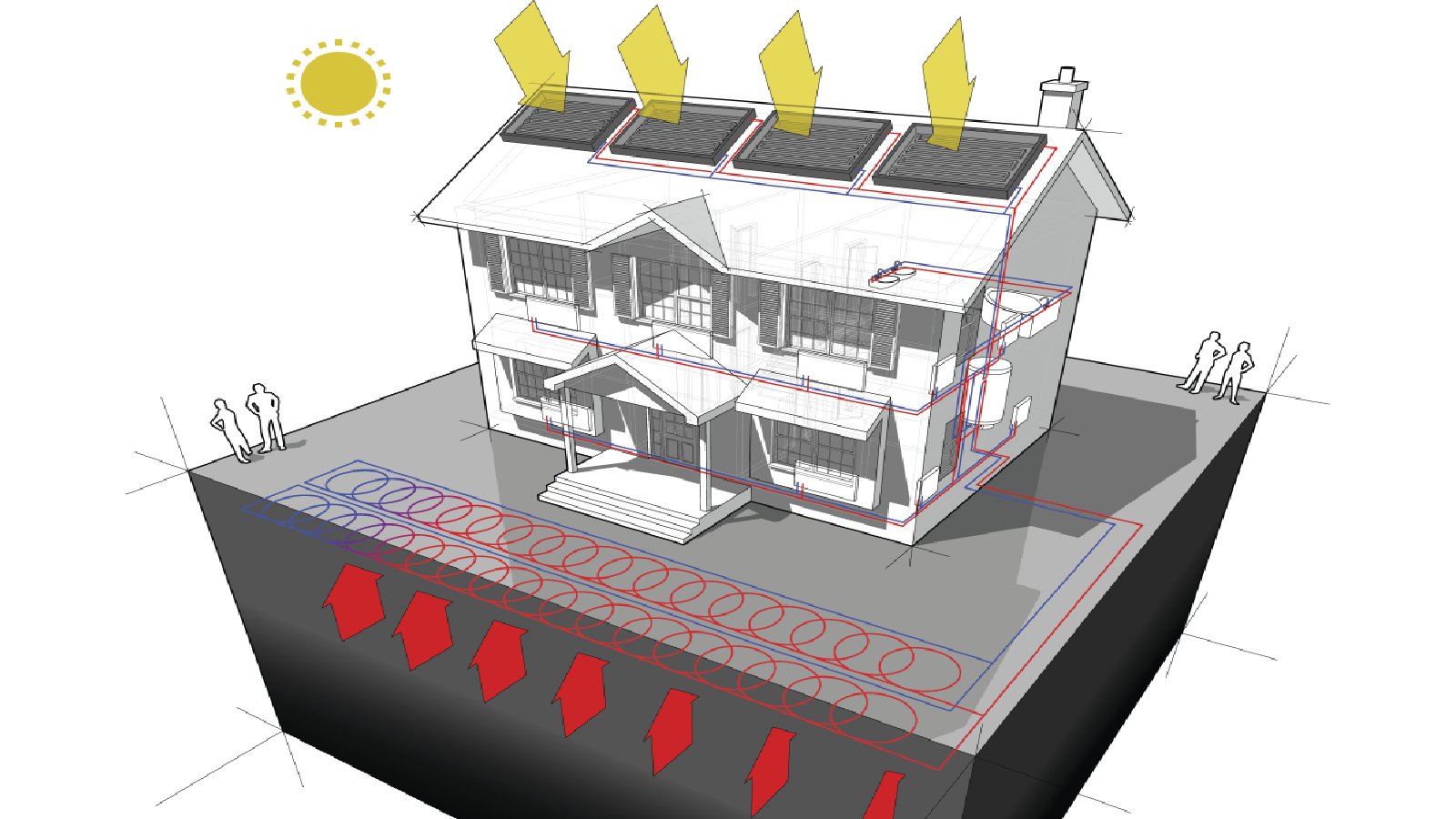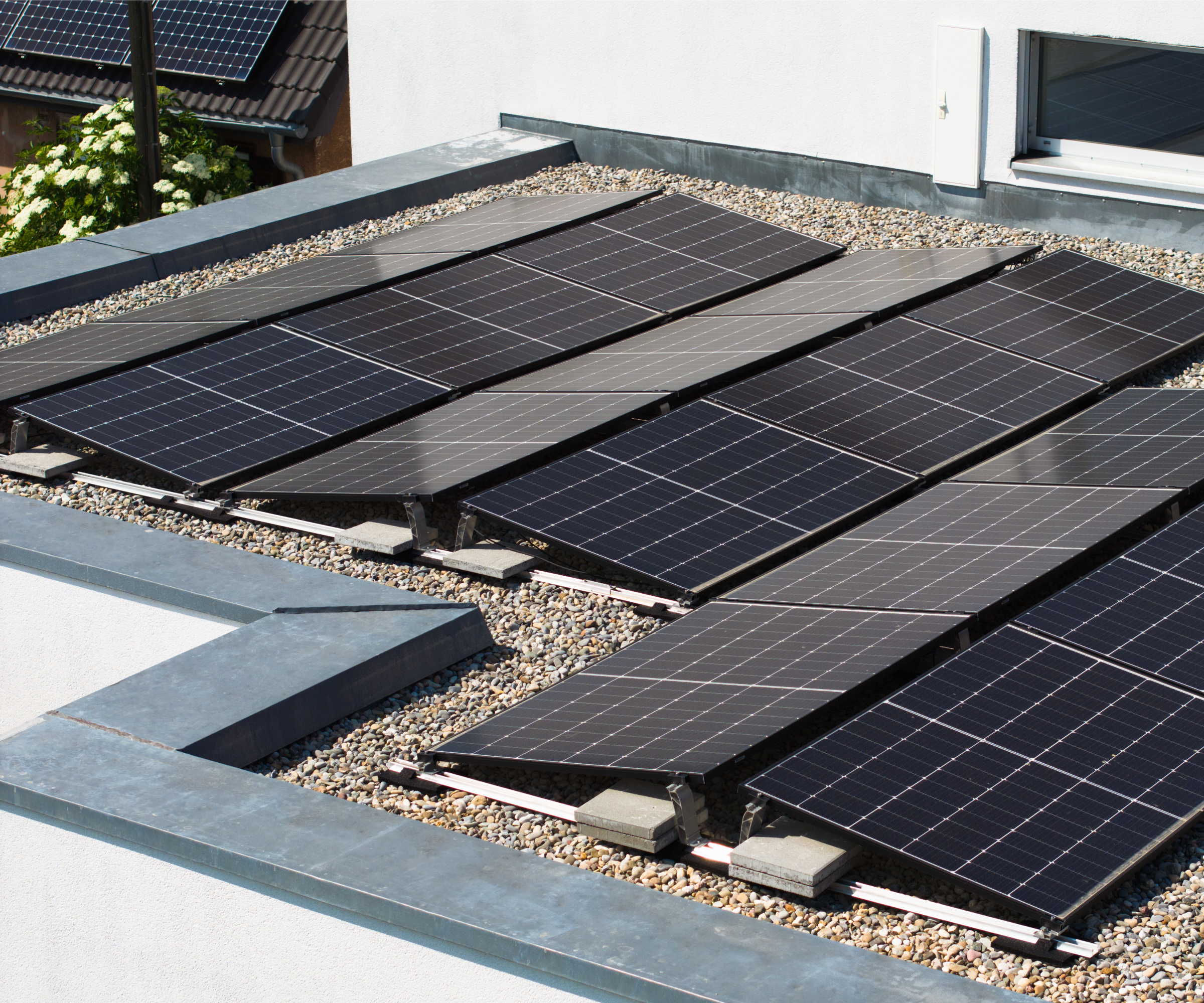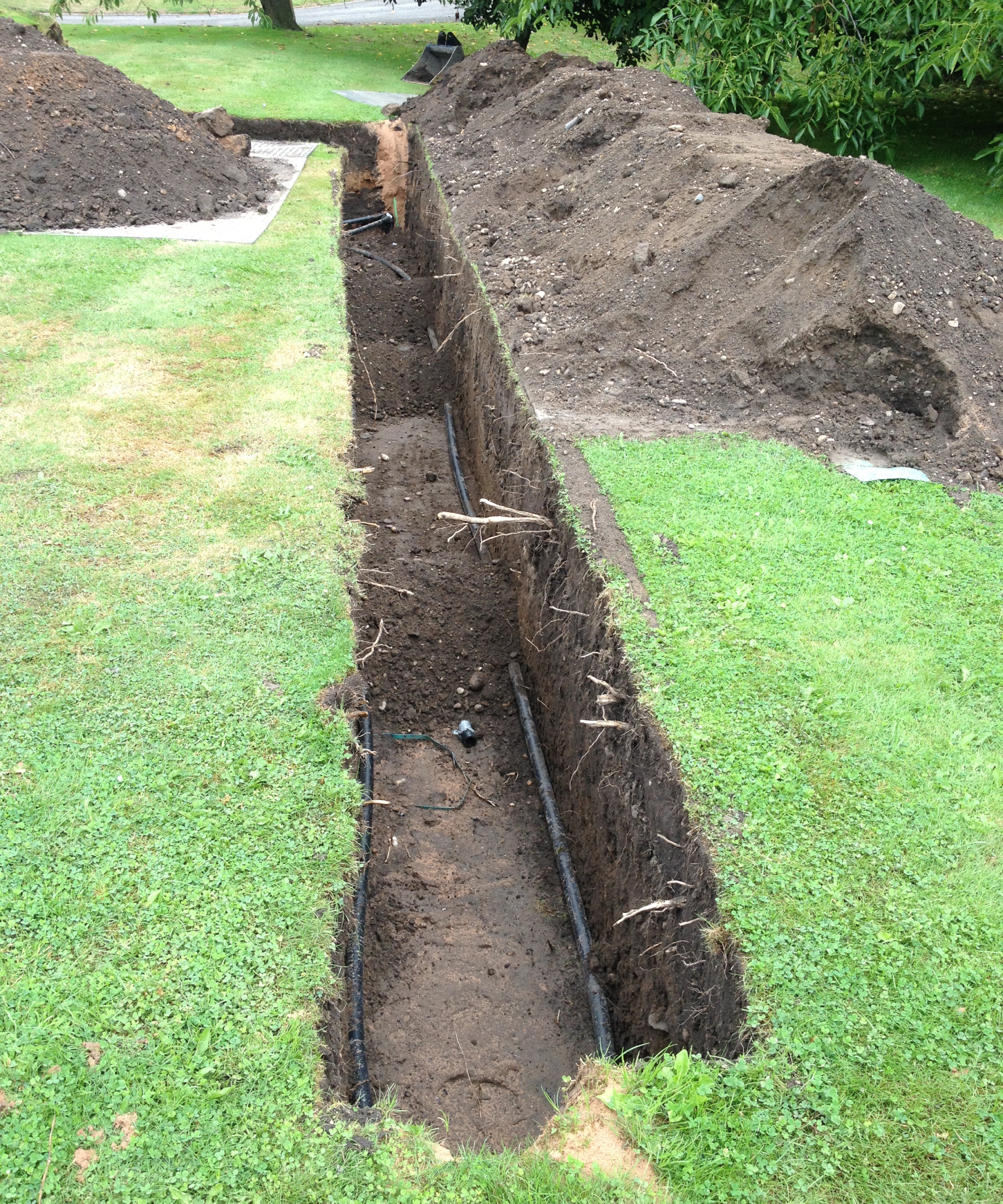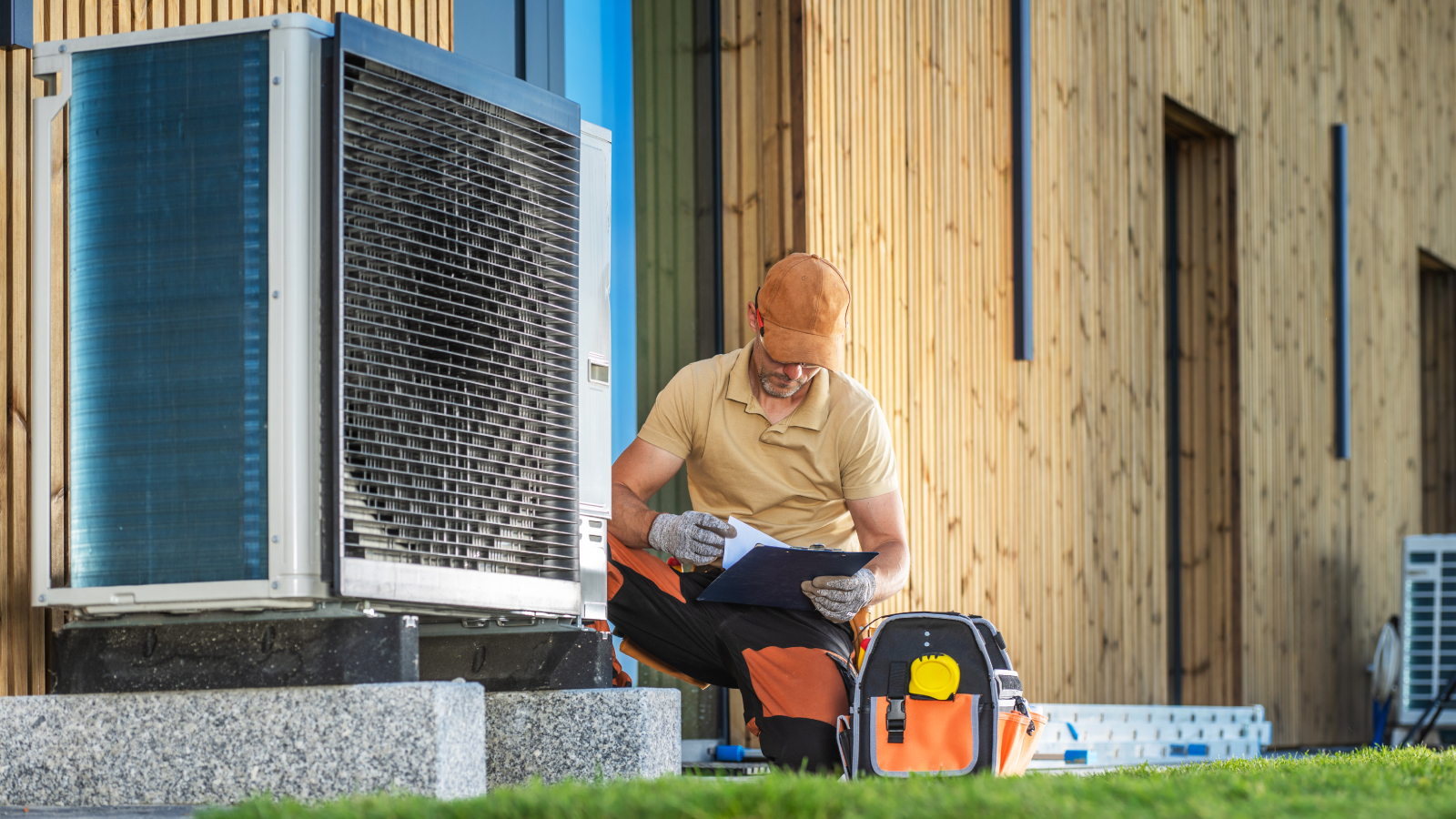Using ground source heat pump and solar panels together — your questions answered
Using a ground source heat pump and solar panels together would seem to offer an excellent energy efficient solution. But how do you get it right and what could affect the performance?

If you're wondering whether solar panels can be used in conjunction with a ground source heat pump, the simple answer is of course, yes. The solar power generated from the panels can be used to provide power to drive the fan and compressor of any type of heat pump.
However, there are a number of factors to consider before installing both systems, along with a basic understanding that it is unlikely you will be able to generate enough power to run your ground source heat pump entirely from solar power.
Here I ask a renewable expert some of the most common questions surrounding ground source heat pumps and solar panels, in order to help guide you on your path towards a more sustainable home energy solution.
Can you use a ground source heat pump and solar panels together?
Using solar panels and heat pumps together is becoming fairly popular, given that the combination of the two technologies is a great way in which to make your home even more sustainable. Air source heat pumps and solar panels are a common combination, but "ground source heat pumps and solar panels are also complementary technologies," confirms Daniel Elmer, technical support manager at Greenscape Energy.
"Ground source heat pumps are supplied with electricity, and convert that electricity into heat while also utilising heat energy from the ground. Solar PV panels are capable of powering the unit, while the ground source heat pump would then generate the heat."
In terms of which you should install first, this is of less importance says Daniel.
“Some homeowners install solar panels first and then realise they have extra energy which they can use for electric heating, while others install a heat pump first and realise they could save even more money by combining it with solar.”
Bring your dream home to life with expert advice, how to guides and design inspiration. Sign up for our newsletter and get two free tickets to a Homebuilding & Renovating Show near you.
But what other factors come into play when deciding how best to combine the two technologies and are all homes suitable for this combination?

Daniel Elmer is the Technical Support Manager at Greenscape Energy, a leader in solar panel, battery storage, EV chargers and air source heat pump installation, and a company at the forefront of renewable energy since 2012. Daniel works closely with manufacturers to solve some of the most pressing issues in sustainable energy solutions for households.
Ground source heat pumps and solar panels: How to get the best results
When using solar PV to help power a ground source heat pump, there are a number of considerations to take into account — some of which are essential and others that will help ensure your system operates as efficiently as possible.
On a practical level, in addition to there being a high initial investment required to install both technologies together, you will also have to ensure there is enough space on your rooftop for the panels, check your solar panel roof suitability and whether you have the required outdoor space for installing a ground source heat pump.
Another thing to consider is that the time at which a heating system will be required – mostly during the evening – will not coincide with the times that the solar panels are operating. The way to compensate for this is to install solar batteries or a solar PV immersion controller. The latter can divert excess electricity generated by the solar panels to your thermal store or hot water cylinder.

Furthermore, the size and efficiency of your solar panel system will determine how much electricity is available to power the heat pump. This means you will have to ensure that the solar panel array is of sufficient size, especially to cover periods of high demand.
The best way to ensure this is to work with a professional installer who can assess your likely energy demand and design the systems accordingly, choosing the right heat pump and ensuring that both panels and heat pump are installed properly.
It is more likely that the solar panels will contribute to the electricity required to run the heat pump rather than providing all the electricity it needs.
“This is because a ground source heat pump is mostly used during the colder months and at night time, when there is less solar energy generation," explains Daniel. "For this reason, energy storage is also rapidly increasing in popularity. A perfectly sized battery system can make all the difference.”
However, whichever way your solar PV system is designed, it will still contribute towards reducing your running costs for operating the heat pump.
Is my home suitable for a ground source heat pump and solar panels?
“Realistically, almost any property could be suitable for a ground source heat pump and solar panels, and the same is true for air source heat pumps, too," says Daniel Elmer. But there are some caveats.
If you've looked into how much space does a ground source heat pump need, you'll know that homes with a sizeable area of land attached to the property are most suitable. The local geology is also important, with wet or clay soils being best, as they have high thermal conductivity.
"The requirement for outdoor space means in some cases an air source heat pump may be more appropriate, than a ground source heat pump," suggests Daniel. "However, it is sometimes possible to overcome this outdoor space requirement by using a bore hole.
“For solar panels, a sound roof structure is the most important requirement," he adds. "Even a smaller property, such as a terraced home with two bedrooms, could gain significant benefits from installing solar panels.
“For those with a listed property or in a conservation area," says Daniel, "it is also vital to follow the guidelines regarding solar panels on listed buildings and installing solar panels in conservation areas in order to avoid falling foul of the authorities.”
The property will also need to be well insulated if the heat pump is to run at maximum efficiency. For other suggestions, follow the advice outlined in is my home suitable for a heat pump and are heat pumps suitable for old homes.

How many solar panels do I need to power a ground source heat pump?
In answer to the question, how many solar panels do I need, “this depends on the size of the property and its unique requirements," says Daniel Elmer. "However, in my experience, energy customers are keen to maximise the number of solar panels on their property for the best possible energy efficiency and cost savings."
Information on how much power your heat pump will need can be found in the heat pump’s specifications and will have been provided by your installer, or shown in the documentation that came with the heat pump.
The first task is to calculate the amount of solar panels you will need, based on the average daily or monthly energy generation of just one solar panel. This varies depending on the amount of sunlight in your location, the orientation of the panel system, its efficiency and whether it is over-shaded by anything.
As an example, a small 2kW heat pump will require 2 kilowatts of electricity to operate, so a solar panel system of at least that size will be required in order for the heat pump to heat a 1,000 square foot living space.
If the building insulation is below standard, or if your location is subjected to extreme heat or cold, then the demand will be larger and so you will need a solar panel array larger than 2 kilowatts. A solar panel system of 4 to 5 kilowatts should be able to achieve this.
In general, that means a solar panel array of at least 12 solar panels should be able to supply most of the electricity needed to drive the heat pump.
Which solar panels work best with a ground source heat pump?
“Currently the market-leading solar panel is in the 435-watt range, and 435-watt and 525-watt panels are the most commonly installed, which are appropriate for ground source heat pumps," advises Daniel Elmer.
“Innovation in the solar panel industry is taking place at speed and there is a trend towards greater efficiency and higher capacity. This is true of heat pumps and batteries, too. It is likely we will see much larger solar panels arriving on the market within the coming months and years, with some manufacturers already debuting 470- and 480-watt solar panels.
"This is a step in the right direction," says Daniel, although he shares a word of caution. "Larger panels will potentially pose a challenge for installers and homeowners, as the larger a solar panel is, the more difficult it will be to fit it onto certain shapes and sizes of roof."
FAQs
Will I need to replace my radiators?
“A full heat loss survey is a vital piece of the puzzle when considering a ground source heat pump and solar panels," says Daniel Elmer. "This provides a detailed overview of efficiency and heating requirements throughout the property, room by room, and means being able to calculate the size of the radiators required in order to create an efficient heating system with heat pumps and radiators.
“When we complete heat loss surveys, we find that in around 60% of cases the existing radiator is suitable and does not need to be replaced," he says. "Homeowners whose radiators were last replaced in the 90s or early 2000s are among the most likely to require a retrofit, as there was a tendency during this period to install radiators of any size without properly assessing requirements."
Will I notice the difference in how my home is heated?
“Having a heat pump installed means the temperature is more ambient, and this should feel more pleasant than with a traditional boiler system," explains Daniel Elmer. "Renewable energy systems work at a lower flow temperature than older systems, which means the home is heated in a more dynamic way.
"Subsequently, homes are more comfortable, with less sudden changes in temperature. It also means no more accidentally touching a scalding hot radiator, which is a great safety benefit for families with young children beyond the potential cost savings and sustainability credentials.”
In conclusion, you can use solar panels to power a ground source heat pump, but it is much better if you also install a solar battery, so that you can use solar generated electricity for this purpose in the evening and to make everything run smoothly and efficiently.
However, as we've already mentioned, installing both a ground source heat pump and solar panels requires considerable investment, especially if you currently have neither, and you also hope to invest in a solar battery. Find out what you can expect to pay for ground source heat pump costs and consider how long do solar panels last to help you decide if your investment is one you're happy to make.

Robin is a freelance journalist based in the South West of England, UK. He specialises in environmental issues, climate change and renewable energy, with other interests in transport and green motoring. He is a regular daily correspondent for a renewable energy website, writing news articles and interview pieces on all the main clean energy technologies. He has also written widely for numerous magazines on these topics, as well as writing white papers and web content.
